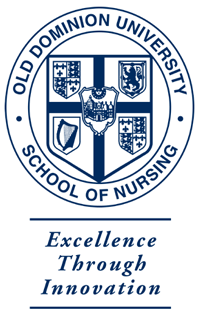
Professional Progress Summary - N481
Professional Progress Summary
NURS 481 – Transition to Professional Nursing Practice
Purpose of the Assignment
The purpose of this assignment is to address the student’s attainment of all eight behaviors and/or competencies that are specific outcomes of the program including: critical thinking, nursing practice, communication, teaching, research, leadership, professionalism, and culture.
Student Approach to Assignment
This assignment allowed me to reflect on the growth and development I’ve experienced throughout my nursing school career as a soon-to-be new graduate nurse. I incorporate various examples within this work to emphasize the experience I’ve received and the understanding of cultural competence and nursing practice. Furthermore, I have emphasized points of accomplishment and areas of improvement at this stage in my career.
Reason for Inclusion of this Assignment in the Portfolio
I decided to include this assignment in my portfolio because it encompasses my understanding of professional nursing practice and discusses the milestones I have achieved since my beginning of nursing school two years ago. This required assignment focuses on my completion of the aforementioned Great Eights, governing objectives over the Old Dominion University School of Nursing.
Critical Thinking
-
Uses decision-making skills in making clinical or professional judgments
-
Example: See page 2 – paragraph 2 (Junior year)
-
-
Evaluates nursing care outcomes through the acquisition of data and the questioning of inconsistencies
-
Example: See page 3 – paragraph 2 (Senior year)
-
Nursing Practice
-
Performs therapeutic interventions that incorporate principles of quality management and proper safety techniques
-
Example: See page 4 – paragraph 1 (Junior year)
-
-
Demonstrates an awareness of complementary modalities and their usefulness in promoting health
-
Example: See page 4 – paragraph 2 (Senior year)
-
-
Establishes and/or utilizes outcome measures to evaluate the effectiveness of care
-
Example: See page 4 – paragraph 2 (Senior year)
-
Communication
-
Adapts communication methods to patients with special needs
-
Example: See page 5 – paragraph 1 (Junior year)
-
-
Demonstrates skills in using technology, informatics, and communication devices that support safe nursing practice
-
Example: See page 5 – paragraph 2 (Senior year)
-
Teaching
-
Provides teaching to patients and/or professionals about health care procedures and technologies in preparation for and following nursing or medical interventions
-
Example: See page 6 – paragraph 2 (Senior year)
-
-
Provides relevant and sensitive health education information and counseling to patients, and families, in a variety of situations and settings
-
Example: See page 6 – paragraph 1 (Junior year)
-
-
Evaluates the efficacy of health promotion and education modalities for use in a variety of settings with diverse populations
-
Example: See page 6 – paragraph 1 (Junior year)
-
Research
-
Shares research findings with colleagues
-
Example: See page 7 – paragraph 1-2 (Junior-Senior year)
-
Leadership
-
Initiates community partnerships to establish health promotion goals and implements strategies to meet those goals
-
Example: See page 8 – paragraph 1 (Junior year)
-
-
Delegates and supervises the nursing care given by others while retaining the accountability for the quality of care provided
-
Example: See page 8 – paragraph 2 (Senior year)
-
Professionalism
-
Differentiates between general, institutional, and specialty-specific standards of practice to guide nursing care
-
Example: See page 9 – paragraph 1 (Junior year)
-
-
Demonstrates accountability for one’s own professional practice
-
Example: See page 9 – paragraph 2 (Senior year)
-
-
Advocates for professional standards of practice using organizational and political processes
-
Example: See page 9 – paragraph 2 (Senior year)
-
Culture
-
Demonstrates sensitivity to personal and cultural definitions of health, and how these beliefs influence an individual’s reactions to the illness experience and end of life
-
Example: See page 10 – paragraph 1 (Junior year)
-
-
Integrates knowledge of cultural diversity in performing nursing interventions
-
Example: See page 11 – paragraph 1 (Senior year)
-
-
Maintains an awareness of global environmental factors that may influence the delivery of health services
-
Example: See page 11 – paragraph 1 (Senior year)
-
Honor Code
“I pledge to support the Honor System of Old Dominion University. I will refrain from any form of academic dishonesty or deception, such as cheating or plagiarism. I am aware that as a member of the academic community, it is my responsibility to turn in all suspected violators of the Honor Code. I will report to a hearing if summoned.”
-
Brandon Sparrer
-
April 20, 2020
-
Signature: Brandon Sparrer
